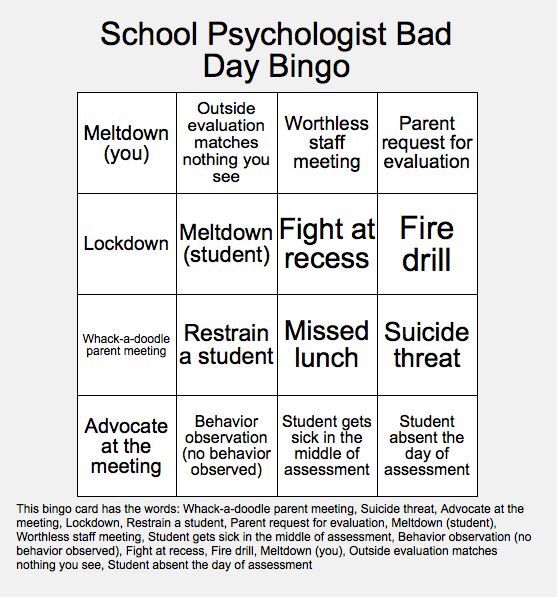Magnesium for calming nerves
Best Forms of Magnesium for Anxiety and Depression
Magnesium’s beneficial effects on mood and stress are so well-known that the mineral has nicknames like “the original chill pill” and “nature’s valium.”
However, many people are on low doses of magnesium or take forms of magnesium that are not well-absorbed by the body. It’s no surprise that they don’t notice any benefit in their anxiety, stress, mood, or sleep. Some of the commonly asked questions that patients have about magnesium supplements include:
-
How does magnesium affect mental health?
-
Which foods have the most magnesium?
-
What forms of magnesium are best for anxiety or depression?
-
How much magnesium is needed for anxiety or depression?
-
What are the side effects of magnesium supplementation? Is it safe?
In this article, we’ll review the different forms of magnesium and their effects on brain health.
How does magnesium affect mental health?
In our first article about magnesium, we explore the connection between magnesium deficiency and anxiety. In addition to anxiety, low magnesium levels have been linked with:
-
Higher levels of stress
-
Depression
-
Insomnia or sleep disturbances
-
Headaches or muscle pain/tightness
-
Fatigue
Magnesium plays two important roles in the brain, which may contribute to these symptoms:
-
It blocks the activity of more stimulating neurotransmitters and binds to calming receptors, resulting in a more peaceful, resting state.
-
It helps to regulate the release of stress hormones like cortisol, acting like the brake on your body’s nervous system.
Which foods have the most magnesium?
When trying to evaluate our magnesium intake, the first source we should look at is our daily diet. Healthy foods are foundational to raising magnesium levels and other essential minerals, and supplements should never be viewed as a substitute for a nutrient-rich diet.
Healthy foods are foundational to raising magnesium levels and other essential minerals, and supplements should never be viewed as a substitute for a nutrient-rich diet.
While it’s beneficial to build a healthy diet with all of these foods, leafy greens are the best source for magnesium and overall mineral intake. This is because grains, seeds, and nuts contain a compound called phytic acid, which can reduce the body’s ability to absorb magnesium and other minerals like zinc and iron.
CAN’T YOU GET ENOUGH MAGNESIUM FROM FOOD?
While diet is the starting point for increasing mineral intake in general, it may not be enough for some people with mental health conditions, because of:
-
Modern day food cultivation. Farming processes have depleted magnesium and other minerals from the soil, and the techniques used in food processing can deplete magnesium levels by up to 80%.

-
Biochemical individuality. Factors such as genetics, metabolism, health conditions, and more can influence how much magnesium an individual person needs for healthy functioning. Those with anxiety, depression and insomnia may need more magnesium than they can feasibly get from their food.
What forms of magnesium are best for anxiety or depression?
There are two main factors to consider when choosing a form of magnesium:
-
Bioavailability, which indicates how much magnesium can be absorbed by the gut.
-
Access to the brain, as effective forms of magnesium have to be able to cross the protective blood brain barrier surrounding the brain.
The two most commonly prescribed forms of magnesium – magnesium oxide and citrate – have the lowest bioavailability of the various forms. This means that they are more likely to pass through the gut and cause loose stools and diarrhea, so they are best used to relieve constipation. Magnesium salts like carbonate and sulfate have similar issues with absorption.
Magnesium salts like carbonate and sulfate have similar issues with absorption.
Based on recent studies, there are certain forms of magnesium that have better bioavailability and ability to cross the blood brain better, making them better treatment options for addressing symptoms of anxiety and depression:
Magnesium Taurate
Magnesium taurate contains an amino acid called taurine, which has a calming, neuroprotective, and anti-inflammatory effect in the brain. Taurine also appears to help the magnesium enter the brain. In addition, it is gentle on the GI tract, making it unlikely to cause loose stool and diarrhea. In a recent study, magnesium acetyl taurate increased brain magnesium levels more than any other form of magnesium.
Magnesium Threonate
This form of magnesium has impressive studies backing its use in mental health conditions and has evidence that it can cross the blood brain barrier. However, it can be more expensive and may require taking 2-3 times more capsules than other magnesium supplements to reach a sufficient therapeutic dose.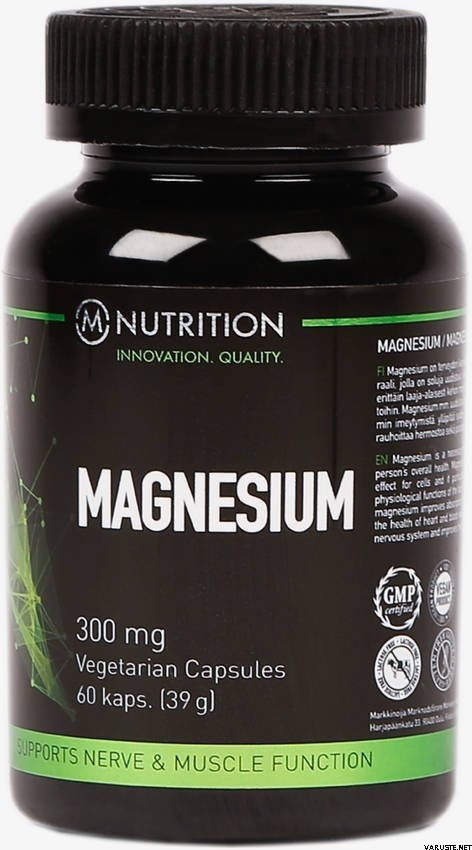
Magnesium Glycinate
Glycine is an essential amino acid that has important neurotransmitter functions in the brain. Glycine supplementation can improve the quality of sleep, making this form of magnesium a good choice for those with insomnia. Preliminary research shows that magnesium glycinate can elevate levels of magnesium in brain tissue. Like magnesium taurate, the glycinate form is gentle on the GI tract.
Magnesium Malate
This is one of the better absorbed forms of magnesium, which increases both serum and muscle levels of magnesium. Preliminary research shows that it may be effective in treating symptoms of fibromyalgia and chronic fatigue, as malate is involved with energy production.
Based on current data, magnesium taurate and glycinate have the most research supporting their effects on anxiety and other mental health disorders. Magnesium malate and threonine have also demonstrated therapeutic effects and may be useful in many psychiatric cases.
* Magnesium citrate has some evidence of entering the brain, but only at significantly high doses.
How much magnesium is needed for anxiety or depression?
At this time, we don’t have enough research to determine the best dose of magnesium for mental health conditions. Recent research indicates that doctors likely need to use higher doses of magnesium for many psychiatric patients than we previously thought.
Most supplement labels and nutritional organizations recommend taking about 320mg of magnesium, which is the recommended dietary allowance set by the FDA. However, this is based on the nutritional needs of healthy individuals and does not take biochemical individuality or preexisting mental health conditions into account.
Stanford recently conducted a study using 1800mg of magnesium threonate in older patients to evaluate its effect on executive functioning and memory. For those wondering how much is too much magnesium, the European Commission found that doses greater than 2500mg could result in toxic hypermagnesaemia (i. e. too much magnesium).
e. too much magnesium).
Anyone taking magnesium supplements past the recommended daily intake or along with other medications should always consult with a physician or other medical professional beforehand.
What are the side effects of magnesium supplementation? Is it safe?
Magnesium is generally very safe, and serious side effects and toxicity are both rare.
For most people, the body efficiently handles excess magnesium by eliminating it through the stool, which is why the most common side effect is loose stool or diarrhea.
Although it is very rare for magnesium to reach toxic levels, signs of toxicity include a fall in blood pressure, lethargy, confusion, heartbeat disturbances, dizziness, muscle weakness, and trouble breathing. Patients with impaired kidney function are at higher risk for adverse effects of magnesium. Magnesium can also interfere with certain drugs, including various antibiotics and medications for diabetes or high blood pressure. If either of these conditions apply, it’s important to check in with your doctor before starting magnesium supplementation.
If either of these conditions apply, it’s important to check in with your doctor before starting magnesium supplementation.
Using the right form and dose of magnesium is like using the right key to open a lock.
When trying to develop a treatment strategy, it’s important to use the most accurate solutions we have. Based on the current data, magnesium taurate and magnesium glycinate are two of the better options that may help those with mental health conditions. Psychiatric patients may also need more magnesium than the average individual but should consult a medical professional if their intake exceeds the FDA’s recommended dosage.
Magnesium is best used as a part of a comprehensive treatment plan along with a proper diet, stress reduction techniques, and treating the root cause of your symptoms. We hope that this information can help you build a strong foundation for your health journey.
References
-
“Timeline (Bioavailability) of Magnesium Compounds in Hours: Which Magnesium Compound Works Best?” Biological Trace Element Research (2018)
-
“Dose-Dependent Absorption Profile of Different Magnesium Compounds” Biological Trace Element Research (2019)
-
“Dietary phytate reduces magnesium bioavailability in growing rats” Nutrition Research (1998)
-
“New therapeutic strategy for amino acid medicine: glycine improves the quality of sleep” Journal of Pharmacological Sciences (2012)
-
“Magnesium L-Threonate for the Enhancement of Learning and Memory in People With Dementia” Stanford University (2014)
-
“Opinion on the Tolerable Upper Intake Level of Magnesium” European Commission Health & Consumer Protection Directorate-General (2001)
The information and any products mentioned in this article are not intended to diagnose, treat, cure, or prevent any disease. The information provided is for educational purposes only and not intended to replace the relationships with your physician(s). Before initiating any conventional or integrative treatments, please first consult with a licensed medical provider. Please review references cited at the end of article for scientific support of any claims made.
The information provided is for educational purposes only and not intended to replace the relationships with your physician(s). Before initiating any conventional or integrative treatments, please first consult with a licensed medical provider. Please review references cited at the end of article for scientific support of any claims made.
RELATED ARTICLES & RESOURCES
Magnesium Deficiency and Anxiety
How Neurofeedback Can Help Anxiety
Anxiety: It’s Not Just Serotonin
leave us a comment
How You Can Fight Anxiety and Feel Better
We include products we think are useful for our readers. If you buy through links on this page, we may earn a small commission. Here’s our process.
Healthline only shows you brands and products that we stand behind.
Our team thoroughly researches and evaluates the recommendations we make on our site.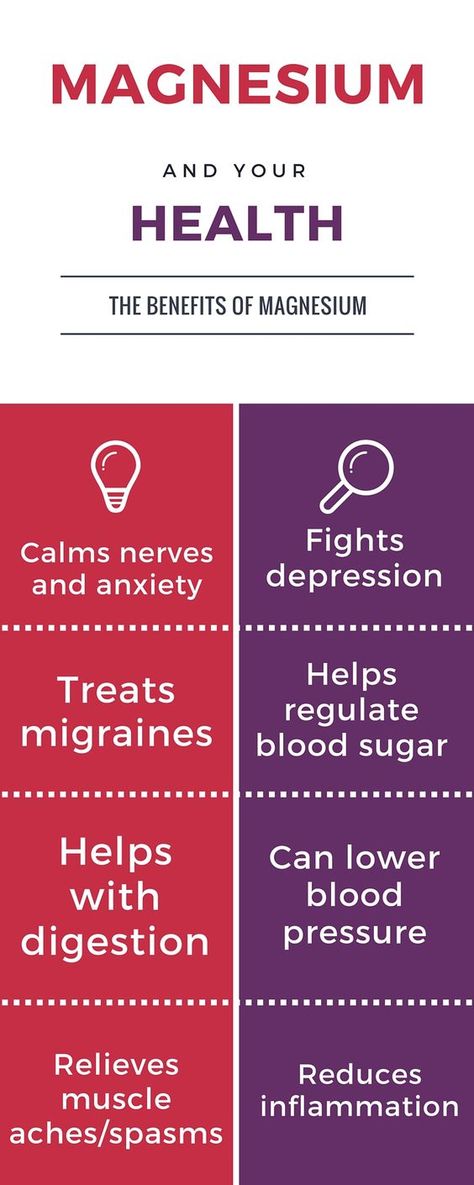 To establish that the product manufacturers addressed safety and efficacy standards, we:
To establish that the product manufacturers addressed safety and efficacy standards, we:
- Evaluate ingredients and composition: Do they have the potential to cause harm?
- Fact-check all health claims: Do they align with the current body of scientific evidence?
- Assess the brand: Does it operate with integrity and adhere to industry best practices?
We do the research so you can find trusted products for your health and wellness.
Read more about our vetting process.One of the most abundant minerals in the body, magnesium plays an important role in a number of bodily functions and has a number of health benefits. In addition to these benefits, magnesium may be helpful as a natural treatment for anxiety. While further studies are needed, there is research to suggest magnesium may help fight anxiety.
A 2010 review of natural treatments for anxiety found that magnesium could be a treatment for anxiety. Lakhan SE, et al. (2010). Nutritional and herbal supplements for anxiety and anxiety-related disorders: systematic review. DOI: 10.1186/1475-2891-9-42
Lakhan SE, et al. (2010). Nutritional and herbal supplements for anxiety and anxiety-related disorders: systematic review. DOI: 10.1186/1475-2891-9-42
More recently, a 2017 review that looked at 18 different studies found that magnesium did reduce anxiety.Boyle NB, et. al. (2017). The effects of magnesium supplementation on subjective anxiety and stress – A systematic review. DOI: 10.3390/nu9050429 These studies looked at mild anxiety, anxiety during premenstrual syndrome, postpartum anxiety, and generalized anxiety. The studies were based on self-reports, so the results are subjective. The review stated that that further, controlled trials are needed to confirm this finding.
According to this review, one of the reasons why magnesium might help reduce anxiety is that it may improve brain function. Research shows that magnesium plays an important role in regulating neurotransmitters, which send messages throughout the brain and body. This is how magnesium plays a role in neurological health. Kirkland A, et al. (2018). The role of magnesium in neurological disorders. DOI: 10.3390/nu10060730
Kirkland A, et al. (2018). The role of magnesium in neurological disorders. DOI: 10.3390/nu10060730
Research has found that magnesium may help with brain functions that reduce stress and anxiety.Sartori SB, et al. (2012). Magnesium deficiency induces anxiety and HPA axis dysregulation: Modulation by therapeutic drug treatment. DOI: 10.1016/j.neuropharm.2011.07.027 It is believed to affect a part of the brain called the hypothalamus, which helps regulate the pituitary and adrenal glands. These glands are responsible for your response to stress.
If you have an anxiety disorder, you might want to consider using magnesium to help reduce your symptoms.
Magnesium is often bound to other substances in order to make it easier for the body to absorb it. The different types of magnesium are categorized according to these bonding substances. The different kinds of magnesium include:
- Magnesium glycinate. Often used to reduce muscle pain.
 Shop for magnesium glycinate.
Shop for magnesium glycinate. - Magnesium oxide. Commonly used to treat migraines and constipation. Shop for magnesium oxide.
- Magnesium citrate. Easily absorbed by the body and also used to treat constipation. Shop for magnesium citrate.
- Magnesium chloride. Easily absorbed by the body. Shop for magnesium chloride.
- Magnesium sulfate (Epsom salt). Generally, less easily absorbed by the body but may be absorbed through the skin. Shop for magnesium sulfate.
- Magnesium lactate. Often used as a food additive. Shop for magnesium lactate.
According to the 2017 review of studies, most of the relevant studies on magnesium and anxiety use magnesium lactate or magnesium oxide.Boyle NB, et. al. (2017). The effects of magnesium supplementation on subjective anxiety and stress – A systematic review. DOI: 10.3390/nu9050429 However, more studies are needed that compare the anti-anxiety effects of different types of magnesium since it’s not clear which type of magnesium is best for anxiety.
According to the Office of Dietary Supplements, studies consistently show that many people aren’t getting enough magnesium from their diets.Office of Dietary Supplements. (2018). Magnesium: Fact sheet for health professionals. ods.od.nih.gov/factsheets/Magnesium-HealthProfessional/ Many people have low magnesium levels.
The Recommended Daily Allowance (RDA) for adults is between 310 and 420 mg.Office of Dietary Supplements. (2018). Magnesium: Fact sheet for health professionals. ods.od.nih.gov/factsheets/Magnesium-HealthProfessional/ The exact RDA will differ depending on your age and gender. More magnesium is also needed during pregnancy, as pregnancy can affect how your body absorbs certain vitamins and minerals.
To ensure you have enough magnesium in your diet, eat foods high in magnesium.
Foods high in magnesium
- leafy greens
- avocado
- dark chocolate
- legumes
- whole grains
- nuts
- seeds
If you take magnesium as a supplement, studies that showed that magnesium can have anti-anxiety effects generally used dosages of between 75 and 360 mg a day, according to the 2017 review.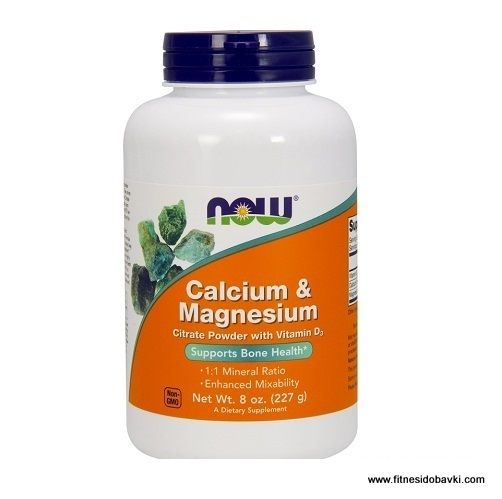
It’s best to consult a healthcare practitioner before taking any supplement so you know the correct dose for you.
While there are few side effects from taking magnesium supplements, it’s always important not to take more of any supplement than you actually need.
According to the Office of Dietary Supplements, high amounts of magnesium in food sources don’t pose a risk as the kidneys usually flush extra magnesium out of the system.Office of Dietary Supplements. (2018). Magnesium: Fact sheet for health professionals. ods.od.nih.gov/factsheets/Magnesium-HealthProfessional/ However, it is possible to overdose on magnesium supplements.
The National Academy of Medicine advises adults not to exceed 350 mg of supplemental magnesium per day.Office of Dietary Supplements. (2018). Magnesium: Fact sheet for health professionals.
ods.od.nih.gov/factsheets/Magnesium-HealthProfessional/ While more magnesium can be eaten in the form of food, a higher dosage of supplements can cause side effects.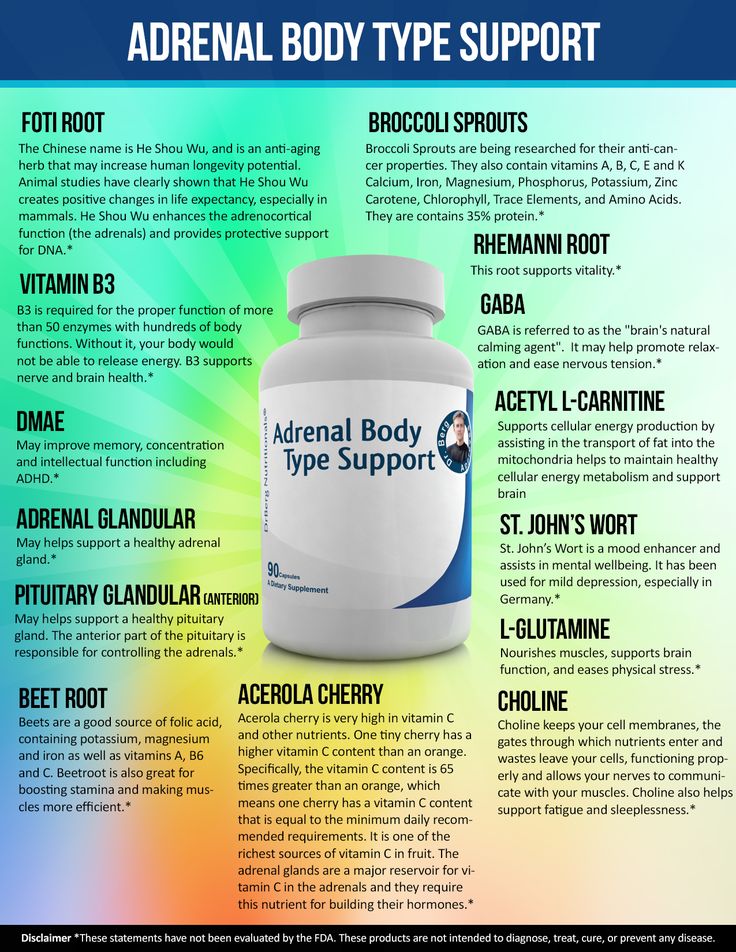
In some trials, test subjects are given a higher dosage. You should only take more than 350 mg per day if your doctor has recommended that dosage. Otherwise you may have magnesium overdose.
Magnesium overdose symptoms
- diarrhea
- nausea
- vomiting
- cardiac arrest
- low blood pressure
- lethargy
- muscle weakness
If you believe you’ve overdosed on magnesium, contact a healthcare professional right away.
There are many benefits of magnesium. From improved mood to bowel health, magnesium works throughout the body. Studies have found many other ways magnesium may help your health.Higdon J, et al. (2019). Magnesium. lpi.oregonstate.edu/mic/minerals/magnesium
Other benefits
- constipation treatment
- better sleep
- reduced pain
- migraine treatment
- reduced risk for type 2 diabetes
- lowered blood pressure
- improved mood
Magnesium is an important mineral with many benefits.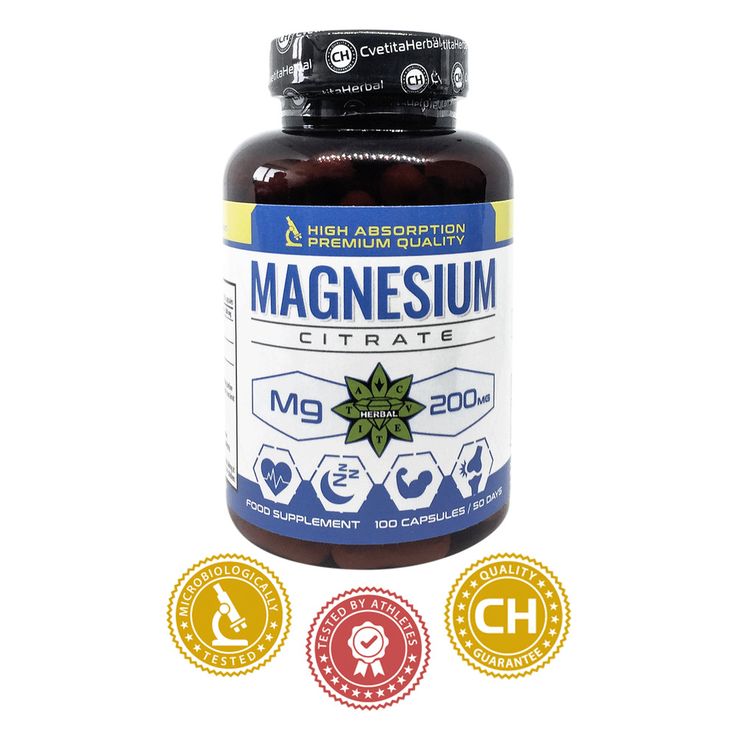 While more evidence is needed to fully understand and explain how it works, magnesium seems to be an effective treatment for anxiety. Speak to a healthcare professional before taking any supplements.
While more evidence is needed to fully understand and explain how it works, magnesium seems to be an effective treatment for anxiety. Speak to a healthcare professional before taking any supplements.
Magnesium through the eyes of a neurologist
Home » The science » Science articles » Magnesium through the eyes of a neurologist
Science
A.S. Kadykov
professor
S.N. Busheneva
doctor
The name "magnesia" is already found in the Leiden Papyrus X (3rd century AD). It probably comes from the name of the city of Magnesia in the mountainous region of Thessaly. Magnesian stone in ancient times was called magnetic iron oxide, and magnes - a magnet. It is interesting that the original name "magnesium" was preserved only in Russian thanks to Hess's textbook, and at the beginning of the 19th century, other names were proposed in a number of manuals - magnesia, magnesia, bitter earth. nine0003
nine0003
The total content of magnesium in the human body is about 25 grams. It plays an important role in the formation of more than three hundred enzymes. Magnesium takes part in energy and electrolyte metabolism, acts as a regulator of cell growth, and is necessary at all stages of the synthesis of protein molecules. The role of magnesium in the processes of membrane transport is especially important. Magnesium helps to relax muscle fibers (musculature of blood vessels and internal organs). The most important value of magnesium is that it serves as a natural anti-stress factor, inhibits the processes of excitation in the central nervous system and reduces the body's sensitivity to external influences. nine0003
It is believed that 25-30% of the population does not get enough magnesium from food. This may be due to modern processing technologies and the use of mineral fertilizers in growing vegetables, leading to a deficiency of magnesium in the soil.
Chronic magnesium deficiency is often observed in patients with diabetes mellitus, arterial hypertension, atherosclerosis, epilepsy, osteoporosis, etc. A number of physiological conditions are known that are accompanied by an increased need for magnesium: pregnancy, breastfeeding, a period of intensive growth and maturation, elderly and senile age, heavy physical labor and physical activity in athletes, emotional stress, frequent and prolonged (more than 30-40 minutes per day). session) stay in the sauna, insufficient sleep, air travel and crossing time zones. Magnesium deficiency occurs when taking caffeine, alcohol, drugs, and certain drugs, such as diuretics, which help remove magnesium in the urine. nine0003
A number of physiological conditions are known that are accompanied by an increased need for magnesium: pregnancy, breastfeeding, a period of intensive growth and maturation, elderly and senile age, heavy physical labor and physical activity in athletes, emotional stress, frequent and prolonged (more than 30-40 minutes per day). session) stay in the sauna, insufficient sleep, air travel and crossing time zones. Magnesium deficiency occurs when taking caffeine, alcohol, drugs, and certain drugs, such as diuretics, which help remove magnesium in the urine. nine0003
Our nervous system is sensitive to the level of magnesium in the body. Its reduced content can cause anxiety, nervousness, fear, as well as insomnia and fatigue, decreased attention and memory, in some cases, seizures, tremors and other symptoms. Often people complain of "causeless" headaches.
Magnesium (especially in combination with vitamin B6) has a normalizing effect on the state of the higher parts of the nervous system during emotional stress, depression, neurosis. This is no coincidence. Stress (physical, mental) increases the need for magnesium, which causes intracellular magnesium deficiency. nine0003
This is no coincidence. Stress (physical, mental) increases the need for magnesium, which causes intracellular magnesium deficiency. nine0003
Magnesium deficiency worsens with age, reaching a maximum in people over 70 years of age. According to the European Epidemiological Study of Cardiovascular Diseases, plasma magnesium levels below 0.76 mmol / l are considered as an additional (for example, arterial hypertension) risk factor for stroke and heart attack. Imbalance of Ca2+ and Mg2+ ions is one of the serious reasons for the formation of blood clots in the vessels. The use of magnesium preparations helps to reduce the tendency to form a blood clot. Magnesium, for example, enhances the antithrombotic effect of aspirin. nine0003
Magnesium is believed to play a positive role by inhibiting the process of atherosclerosis.
Taking into account the latest data on the prevalence of magnesium deficiency in residents of large cities, its content in the blood is determined in neurological patients with chronic fatigue syndrome, vegetative-vascular dystonia, as well as depression and asthenia. Normally, the content of magnesium in the blood serum in children varies from 0.66 to 1.03 mmol / l, in adults from 0.7 to 1.05 mmol / l.
Normally, the content of magnesium in the blood serum in children varies from 0.66 to 1.03 mmol / l, in adults from 0.7 to 1.05 mmol / l.
In healthy people, the daily requirement for magnesium is 350-800 mg. With magnesium deficiency, its additional administration is required at the rate of 10-30 mg per kilogram of body weight per day. In addition to dietary correction, medicinal preparations are also used. The saturation time of tissue depots during magnesium therapy is 2 months or more. The choice of preparations for correction is well known - these are inorganic and organic magnesium salts. The first generation of magnesium preparations included inorganic salts. However, in this form, magnesium is absorbed by no more than 5%, stimulates intestinal motility, which often leads to diarrhea. Magnesium absorption in the gastrointestinal tract is increased by lactic, pidolic and orotic acids, vitamin B6 (pyridoxine), and some amino acids. nine0003
The second generation of magnesium-containing preparations is much better absorbed and does not cause dyspepsia and diarrhea. Modern combined preparations include Magne-B6.
Modern combined preparations include Magne-B6.
The anti-anxiety effect of Magne-B6 allows it to be included in the complex therapy of depression (together with antidepressants), convulsive conditions (in combination with anticonvulsants), sleep disorders (together with sleeping pills), and also to use the drug as an additional tool for prevention and leveling mild excitatory effects of brain metabolism activators. Magnesium therapy is quite a promising direction in the treatment of night sleep disorders of various origins, especially in patients with asthenic and anxiety conditions. The vasodilating effect of magnesium ions allows the use of Magne-B6 in combination with antihypertensive agents. However, a decrease in blood pressure in response to the administration of magnesium is achieved only in patients with magnesium deficiency. nine0003
Magne-B6 is generally well tolerated without causing any side effects. Normalizing the level of magnesium in the human body in combination with other drugs can achieve success in many diseases of the nervous system, it is currently considered as a classic metabolic therapy.
© Journal "Nerves", 2006, №1
FORM for an appointment with a specialist...
07/14/2015
Share link:
how to live without stress and fatigue
Opt Out Cookies
Opt-out cookie for google analytics has been set. Future recording of your data with google analytics when you visit this website is disabled.
Efficiency at zero, you can’t get enough sleep, your character is rapidly deteriorating, your once-loved work becomes a source of continuous irritation, and even exercising in the gym does not bring pleasure? nine0003
These problems are familiar to many residents of megacities, who live in constant tension and work literally to the point of wear and tear. But, as studies show, it can also be a lack of magnesium - the most important substance that is responsible for energy levels and the ability to cope with stress. And almost half of our compatriots chronically lack this useful substance [1].
And almost half of our compatriots chronically lack this useful substance [1].
If we compare the human nervous system with a computer, then magnesium can be called a controller that regulates the distribution of power in all electrical circuits. It is involved in the regulation of the state of cell membranes and metabolic reactions for the formation, transfer and utilization of energy throughout the body. That is why this trace element is important for the normal functioning of the nervous system and, first of all, for adapting to rapidly changing environmental conditions and developing resistance to stimuli [1]. nine0003
Magnesium deficiency leads to poor resistance to stress, increased anxiety and irritability, impaired attention, depression, sleep, cardiovascular and hormonal disorders, and a marked decrease in the overall energy level in the body. In turn, under the influence of stress factors, the excretion of magnesium from the body increases, which further aggravates the problems that have arisen [1].
Unfortunately, it is quite difficult to compensate for magnesium deficiency in our time. And there are two reasons for this. First, the dietary habits of a modern person: with excessive consumption of salt, protein and fat (for example, fast food, semi-finished products), the intake of magnesium in the body is significantly reduced [2]. Secondly, scientists note that the content of magnesium in the soil, and hence in agricultural products, has decreased in recent decades [2]. Therefore, even including in the diet of its sources - green vegetables, grain products, meat and fish - it is not easy to get enough of such an important substance. nine0003
This means that it is necessary to compensate for the lack of magnesium with the help of vitamin-mineral complexes [1,2]. There are several of them in the line of DOPPLHERZ® active drugs, including:
DOPPLHERZ® ACTIVE MAGNESIUM + B GROUP VITAMINS is intended for those who are constantly exposed to stress factors, have to work hard mentally and physically, follow strict diets or simply eat unbalanced. This drug is enriched with vitamins B1, B6 and B12, which complement the functions of magnesium in protecting the nervous system: they improve the conduction of nerve impulses, regulate cell nutrition, and participate in the synthesis of neurotransmitters [1,3,4]. nine0003
This drug is enriched with vitamins B1, B6 and B12, which complement the functions of magnesium in protecting the nervous system: they improve the conduction of nerve impulses, regulate cell nutrition, and participate in the synthesis of neurotransmitters [1,3,4]. nine0003
DOPPELHERZ® ACTIVE L-CARNITINE + MAGNESIUM is suitable for people who not only work in the office, but also actively play sports. L-carnitine is an important regulator of energy metabolism, helping to increase muscle performance in both professional athletes and amateurs. It contributes to a better recovery of the body after exercise, improves blood flow in the muscles, fights inflammatory reactions during microtrauma, and also has a cardioprotective effect [5].
DOPPELHERZ® ACTIVE MAGNESIUM+POTASSIUM helps replenish magnesium deficiency and increase energy levels. Including by improving the work of the heart and the condition of blood vessels. Potassium and magnesium are substances that regulate each other's functions: the correct balance of these trace elements in the body is important for the functioning of the heart muscle, smooth and skeletal muscles, normal kidney function and optimal metabolism and energy at the cellular level [6]. nine0003
nine0003
Read more about when magnesium is recommended here.
[1] E.A. Tarasov, D.V. Blinov, U.V. Zimovina, E.A. Sandakova Magnesium deficiency and stress: relationship issues, diagnostic tests and approaches to therapy // THERAPEUTIC ARCHIVE, No. 9, 2015
[2] N.Yu. Semigolovsky Magnesium deficiency as a general medical problem // DIFFICULT PATIENT, No. 9, 2008
[3] L.V. Levchuk, O.V. Stennikova Vitamins of group B and their influence on the state of health and intellectual development of children // ISSUES OF MODERN PEDIATRICS, vol. 8, no. 3
[4] Yu.A. Starchina B vitamins in the treatment of diseases of the nervous system // Neurology, neuropsychiatry, psychosomatics, 2009
[5] L.A. Balykova, O.M. Soldatov, L.A. Ivyansky, O.V. Ferapontova Rationale for the use of L-carnitine in sports medicine // ROSSIYSKY BULLETIN OF PERINATOLOGY AND PEDIATRIES, No. 5, 2010
[6] A.M. Shilov, M.V. Melnik, A.O. Hosea, A.S. Deprive Potassium and magnesium preparations in the treatment of cardiovascular diseases in the practice of a primary care physician // Rational Pharmacotherapy in Cardiology No.










